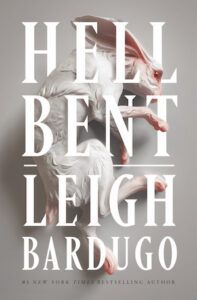
Dark Academia vs. Chaotic Academia: What’s the Difference?
As a literary movement, dark academia has been gaining traction the past ten years or so. It all comes from a romanticization of higher learning — the outfits, the school grounds, and yes, of course, the literature. As a grad school student with a flair for the dramatic myself, I have fallen head over oxfords in love with just about everything to do with dark academia. Except for one thing — elitism.
Much of the dark academia aesthetic in both everyday and in literature deals a lot in elitism. It makes sense in a way; it’s a way of celebrating being at the top of your class at the best schools, but it also comes with a lot of terrible baggage. Because where there is elitism? Classism, racism, sexism, homophobia, and ableism are sure to follow.
It’s true that many newer dark academia books are pointing out and critiquing elitism in academia, but what if you want a rejection of it entirely that not only calls it out, but seeks to undermine it at every turn?
I present to you: chaotic academia.
What Even is Chaotic Academia?
If you have never heard the term “chaotic academia” before, it’s best to think of it as a personification. This could be someone you know or just a character trope, but I want you to imagine an English professor, probably your favorite professor. This is one of the most brilliant people you’ve ever met: they are kind and encouraging and have fascinating stories. They are also the most disorganized messy person who has probably ever walked the face of the earth. That’s chaotic academia.
Instead of worrying about “looking” the part, or studying the “right” things, chaotic academia is all about having a passion for learning. It doesn’t matter how smart you actually are, what you study, or what you want to do when you graduate. It’s all about just striving for knowledge, and sharing that with those around you.
Where dark academia is clean lines, Latin, and “high-brow” literature, chaotic academia is messy notes, niche topics, and banned books. It’s an aesthetic that seeks to undermine and mock the pretentious nature of dark academia. It’s all about passion, and desire to learn, no matter the subject.
Where Does It Show Up?
Now, this is a relatively new term, especially because it’s a direct response to dark academia, which is still itself a brand new sub-genre. In fact, the term was only just used for the first time in a Tumblr post in 2019. But just because the term itself is new doesn’t mean we haven’t been seeing it pop up in books for years! We just finally have a name for it.
Legendborn by Tracy Deonn is a great example of a book that could easily fall into a chaotic academia canon. This is a book all about rejecting the status quo of academia and following what you are passionate about, rather than what’s expected.
I could also make an argument that Babel by R.F. Kuang straddles the line between dark academia and chaotic academia, as it heavily points out the institutions of white supremacy and colonialism that infect and support higher learning still to this day.
Again, because this is a new aesthetic that hasn’t quite made its way into the literary world yet, its hard to say what books could count as it. And, I’m really not here to take a book from one sub-genre, and say it actually belongs in another. But these are books where we can see elements of chaotic academia peeking through.
Looking Forward
Because the naming of this aesthetic is still in its nascent stages, I do think it will be a while before we start to see books that fall squarely in the chaotic academia zone, if we ever do at all. Regrettably, I can’t predict the future, but I do have a hope for it.
As dark academia continues to grow and develop, I hope that chaotic academia rises to meet it and sometimes clash with it. There is so much important and nuanced discussion to be had about higher education, and the roll it plays in our society and our lives, and I see chaotic academia as a great way to host these conversations.
Dark academia will literally always have a place in my heart. But there is something so refreshing about a possible new sub-genre that doesn’t give a flying flip about elitism, and instead focuses on the love of learning, and the importance of education, no matter what it is you’re studying. There’s a lot to be learned, and a lot to be gained by questioning our preconceived notions about what counts as “academia,” and I can’t wait to continue reading about and having this conversation for years to come — while reading some truly great books, of course.
Also In This Story Stream
- Why Demonic Prep Boys Keep Appearing in the Dark Academia Canon
- The Best Dark Academia in Science Fiction and Fantasy
- Dark Academia and Horror: A Bloody, Perfect Marriage
- Class Action: 8 of the Best Dark Academia YA Fantasy Books
- 8 Dark Academia Manga and Manhwa
- Why Dark Academia is Perennially Popular


















